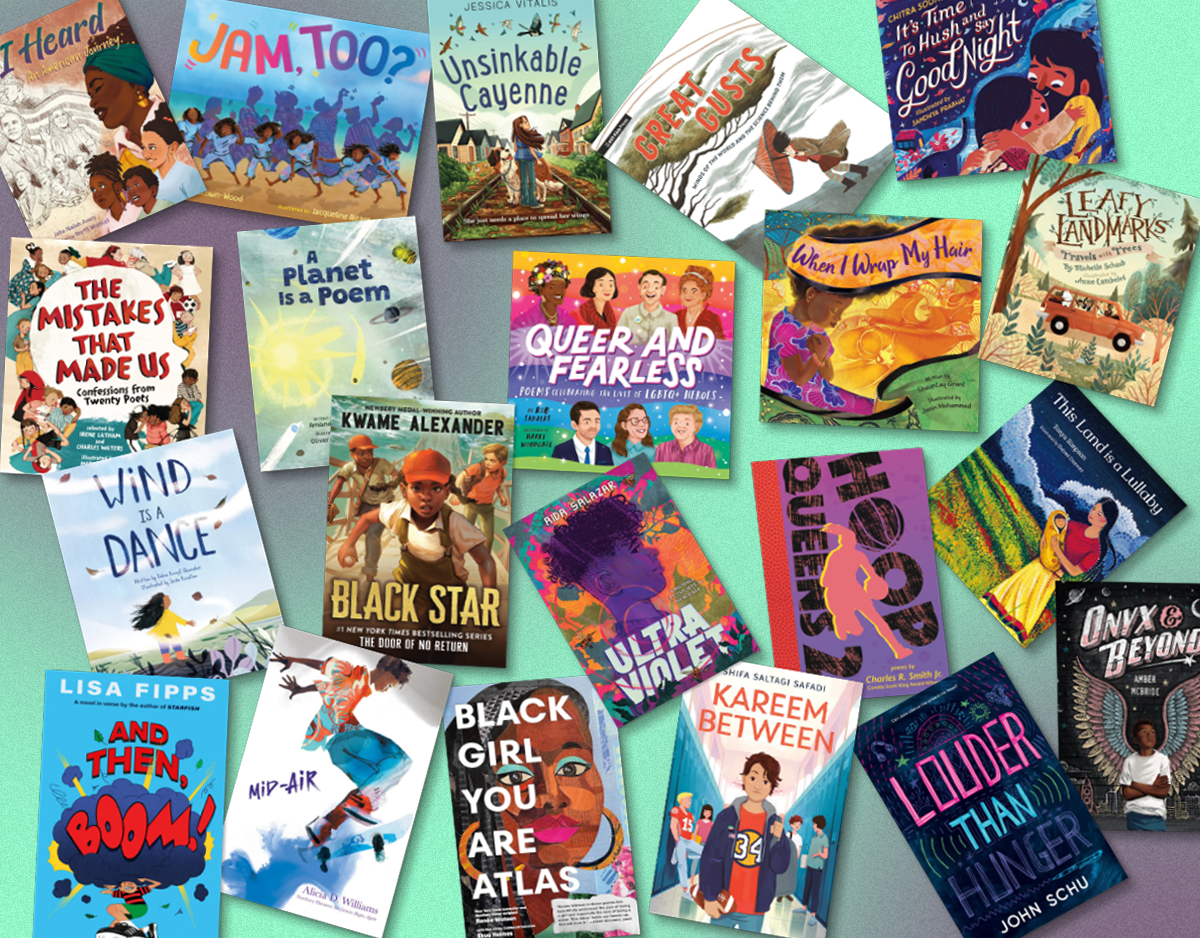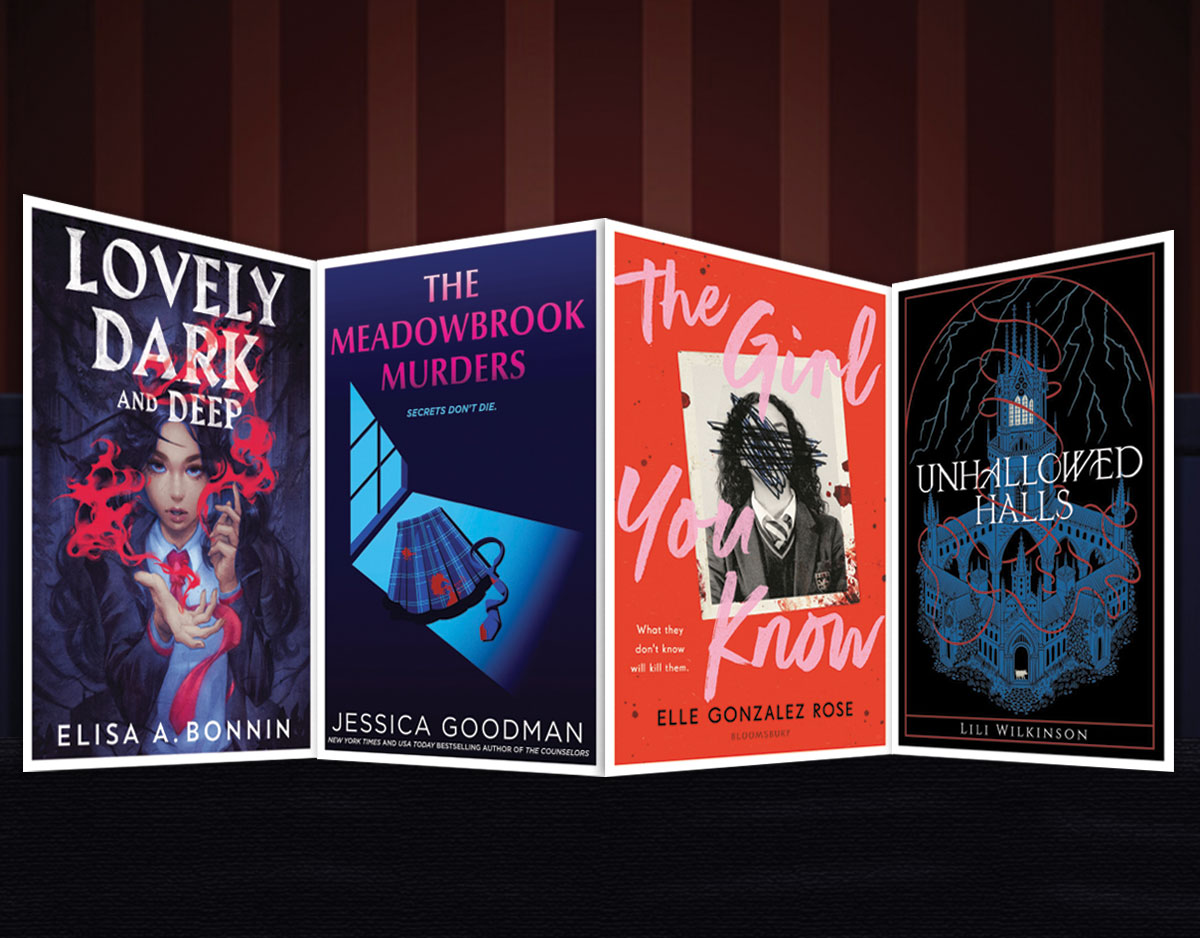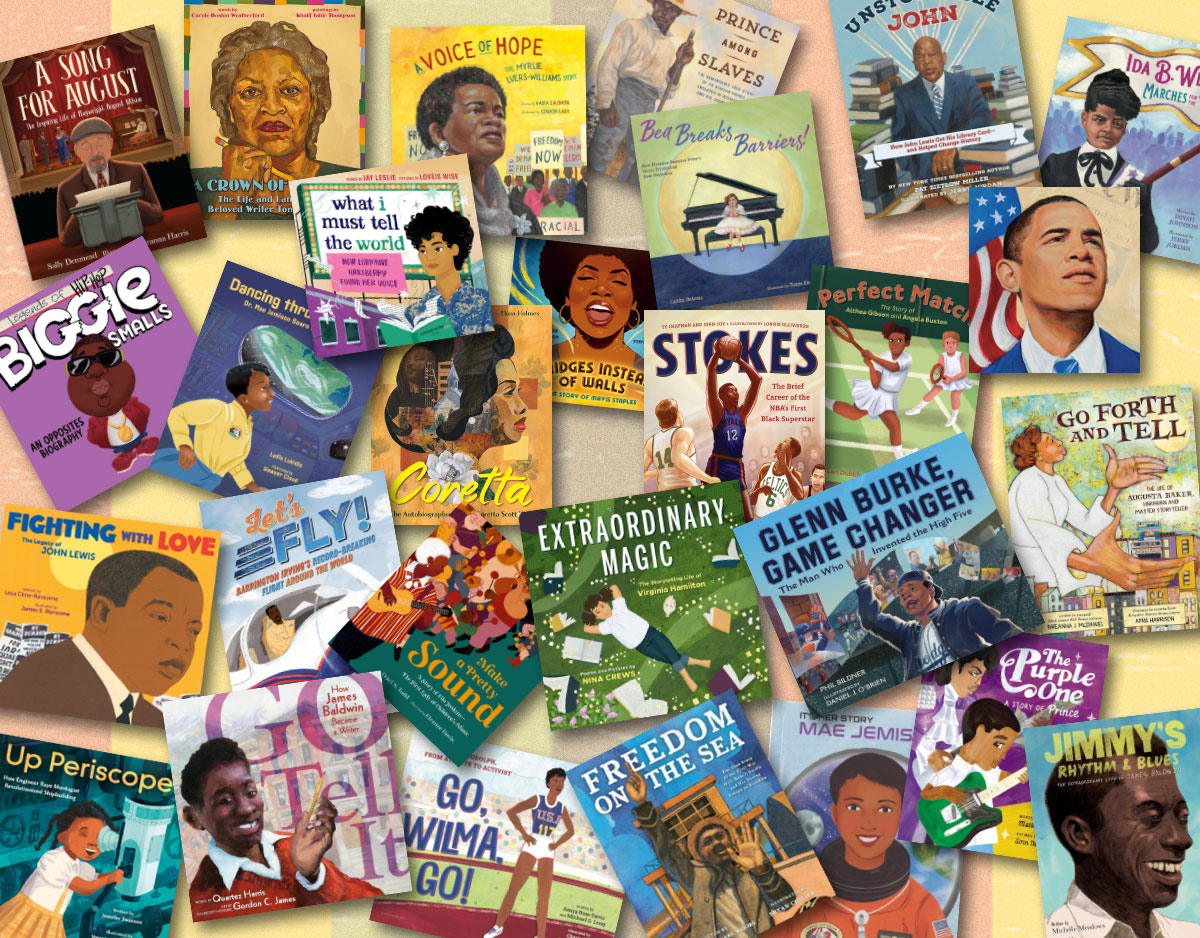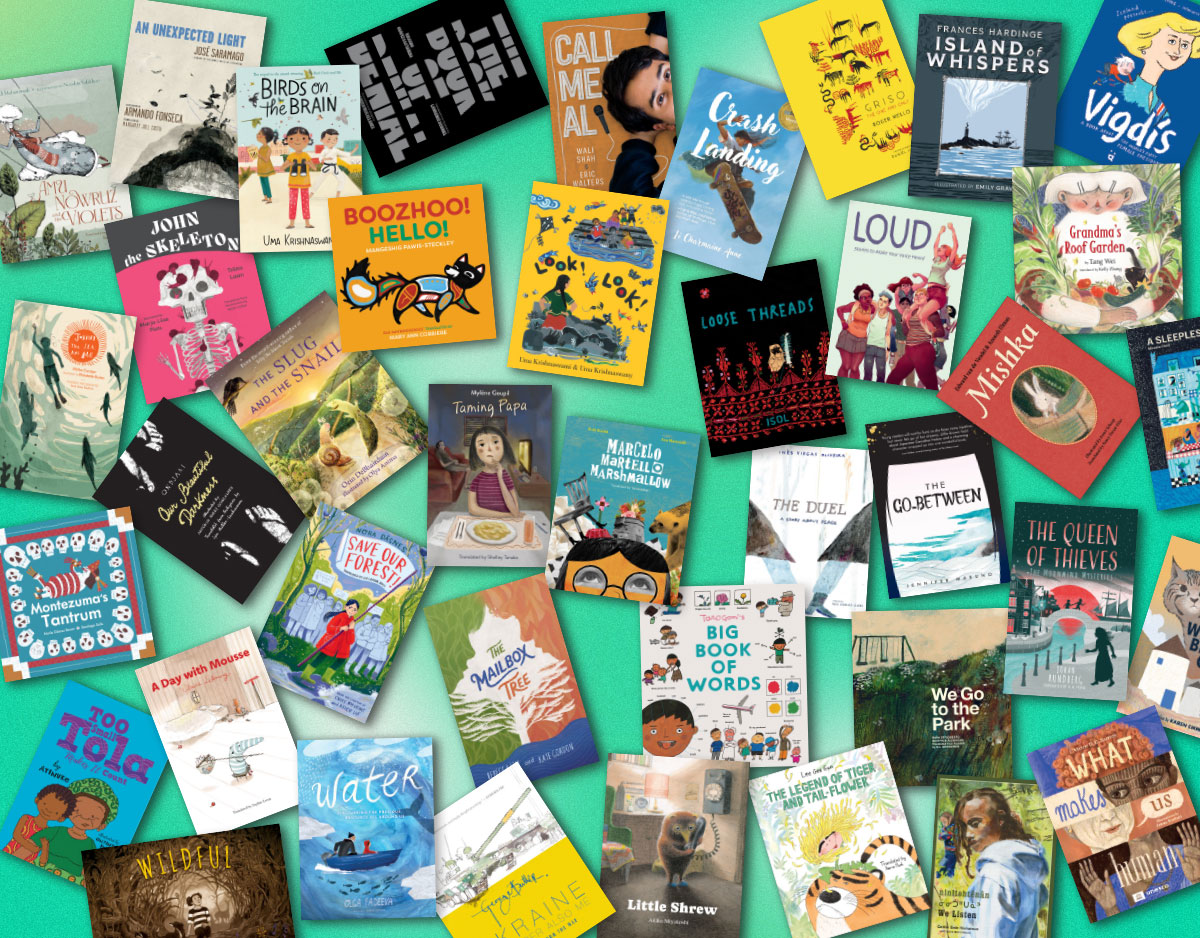Review of the Day: Cuckoo Song by Frances Hardinge
 Cuckoo Song
Cuckoo Song
By Frances Hardinge
Amulet Books (an imprint of Abrams)
$17.95
ISBN: 978-1419714801
Ages 10 and up
On shelves May 12, 2015
I was watching the third Hobbit movie the other day (bear with me – I’m going somewhere with this) with no particular pleasure. There are few things in life more painful to a children’s librarian than watching an enjoyable adventure for kids lengthened and turned into adult-centric fare, then sliced up into three sections. Still, it’s always interesting to see how filmmakers wish to adapt material and as I sat there, only moderately stultified, the so-called “Battle of the Five Armies” (which, in this film, could be renamed “The Battle of the Thirteen Odd Armies, Give Or Take a Few) comes to a head as the glorious eagles swoop in. “They’re the Americans”, my husband noted. It took a minute for this to register. “What?” “They’re the Americans. Tolkien wrote this book after WWI and the eagles are the Yanks that swoop in to save the day at the very last minute.” I sat there thinking about it. England has always had far closer ties to The Great War than America, it’s true. I remember sitting in school, baffled by the vague version I was fed. American children are taught primarily Revolutionary War, Civil War, and WWII fare. All other conflicts are of seemingly equal non-importance after those big three. Yet with the 100 year anniversary of the war to end all wars, the English, who had a much larger role to play, are, like Tolkien, still producing innovative, evocative, unbelievable takes that utilize fantasy to help us understand it. And few books do a better job of pinpointing the post traumatic stress syndrome of a post-WWI nation than Frances Hardinge’s Cuckoo Song. They will tell you that it’s a creepy doll book with changelings and fairies and things that go bump in the night. It is all of that. It is also one of the smartest dissections of what happens when a war is done and the survivors are left to put their lives back together. Some do a good job. Some do not.
Eleven-year-old Triss is not well. She knows this, but as with many illnesses she’s having a hard time pinpointing what exactly is wrong. It probably had to do with the fact that she was fished out of the Grimmer, a body of water near the old stone house where her family likes to vacation. Still, that doesn’t explain why her sister is suddenly acting angry and afraid of her. It doesn’t explain why she’s suddenly voracious, devouring plate after plate of food in a kind of half mad frenzy. And it doesn’t explain some of the odder things that have been happening lately either. The dolls that don’t just talk but scream too. The fact that she’s waking up with dead leaves in her hair and bed. And that’s all before her sister is nearly kidnapped by a movie screen, a tailor tries to burn her alive, and she discovers a world within her world where things are topsy turvy and she doesn’t even know who she is anymore. Triss isn’t the girl she once was. And time is running out.
ADVERTISEMENT
ADVERTISEMENT
From that description you’d be justified in wondering why I spent the better half of the opening paragraph of this review discussing WWI. After all, there is nothing particularly war-like in that summary. It would behoove me to me mention then that all this takes place a year or two after the war. Triss’s older brother died in the conflict, leaving his family to pick up the pieces. Like all parents, his are devastated by their loss. Unlike all parents, they make a terrible choice to keep him from leaving them entirely. It’s the parents’ grief and choices that then become the focal point of the book. The nation is experiencing a period of vast change. New buildings, new music, and new ideas are proliferating. Yet for Triss’s parents, it is vastly important that nothing change. They’re the people that would prefer to live in an intolerable but familiar situation rather than a tolerable unknown. Their love is a toxic thing, harming their children in the most insidious of ways. It takes an outsider to see this and to tell them what they are doing. By the end, it’s entirely possible that they’ll stay stuck until events force them otherwise. Then again, Hardinge leaves you with a glimmer of hope. The nation did heal. People did learn. And while there was another tragic war on the horizon, that was a problem for another day.
So what’s all that have to do with fairies? In a smart twist Hardinge makes a nation bereaved become the perfect breeding ground for fairy (though she never calls them that) immigration. It’s interesting to think long and hard about what it is that Hardinge is saying, precisely, about immigrants in England. Indeed, the book wrestles with the metaphor. These are creatures that have lost their homes thanks to the encroachment of humanity. Are they not entitled to lives of their own? Yet some of them do harm to the residents of the towns. But do all of them? Should we paint them all with the same brush if some of them are harmful? These are serious questions worth asking. Xenophobia comes in the form of the tailor Mr. Grace. His smooth sharp scissors cause Triss to equate him with the Scissor Man from the Struwwelpeter tales of old. Having suffered a personal loss at the hands of the otherworldly immigrants he dedicates himself to a kind of blind intolerance. He’s sympathetic, but only up to a point.
Terms I Dislike: Urban Fairies. I don’t particularly dislike the fairies themselves. Not if they’re done well. I should clarify that the term “urban fairies” is used when discussing books in which fairies reside in urban environments. Gargoyles in the gutters. That sort of thing. And if we’re going to get technical about it then yes, Cuckoo Song is an urban fairy book. The ultimate urban fairy book, really. Called “Besiders” their presence in cities is attributed to the fact that they are creatures that exist only where there is no certainty. In the past the sound of church bells proved painful, maybe fatal. However, in the years following The Great War the certainty of religion began to ebb from the English people. Religion didn’t have the standing it once held in their lives/hearts/minds, and so thanks to this uncertainty the Besiders were able to move into places in the city made just for them. You could have long, interesting book group conversations about the true implications of this vision.
There are two kinds of Frances Hardinge novels in this world. There are the ones that deal in familiar mythologies but give them a distinctive spin. That’s this book. Then there are the books that make up their own mythologies and go into such vastly strange areas that it takes a leap of faith to follow, though it’s worth it every time. That’s books like The Lost Conspiracy or Fly By Night and its sequel. Previously Ms. Hardinge wrote Well Witched which was a lovely fantasy but felt tamed in some strange way. As if she was asked to reign in her love of the fabulous so as to create a more standard work of fantasy. I was worried that Cuckoo Song might fall into this same trap but happily this is not the case. What we see on the page here is marvelously odd while still working within an understood framework. I wouldn’t change a dot on an i or a cross on a t.
ADVERTISEMENT
ADVERTISEMENT
Story aside, it is Hardinge’s writing that inevitably hooks the reader. She has a way with language that sounds like no one else. Here’s a sentence from the first paragraph of the book: “Somebody had taken a laugh, crumpled it into a great, crackly ball, and stuffed her skull with it.” Beautiful. Line after line after line jumps out at the reader this way. One of my favorites is when a fellow called The Shrike explains why scissors are the true enemy of the Besiders. “A knife is made with a hundred tasks in mind . . . But scissors are really intended for one job alone – snipping things in two. Dividing by force. Everything on one side or the other, and nothing in between. Certainty. We’re in-between folk, so scissors hate us.” If I had half a mind to I’d just spend the rest of this review quoting line after line of this book. For your sake, I’ll restrain myself. Just this once.
When this book was released in England it was published as older children’s fare, albeit with a rather YA cover. Here in the States it is being published as YA fare with a rather creepy cover. Having read it, there really isn’t anything about the book I wouldn’t readily hand to a 10-year-old. Is there blood? Nope. Violence? Not unless you count eating dollies. Anything remarkably creepy? Well, there is a memory of a baby changeling that’s kind of gross, but I don’t think you’re going to see too many people freaking out over it. Sadly I think the decision was made, in spite of its 11-year-old protagonist, because Hardinge is such a mellifluous writer. Perhaps there was a thought to appeal to the Laini Taylor fans out there. Like Taylor she delves in strange otherworlds and writes with a distinctive purr. Unlike Taylor, Hardinge is British to her core. There are things here that you cannot find anywhere else. Her brain is a country of fabulous mini-states and we’ll be lucky if we get to see even half of them in our lifetimes.
There was a time when Frances Hardinge books were imported to America on a regular basis. For whatever reason, that stopped. Now a great wrong has been righted and if there were any justice in this world her Yankee fans would line the ports waiting for her books to arrive, much as they did in the time of Charles Dickens. That she can take an event like WWI and the sheer weight of the grief that followed, then transform it into dark, creepy, delicious, satisfying children’s fare is awe-inspiring. You will find no other author who dares to go so deep. Those of you who have never read a Hardinge book, I envy you. You’re going to be discovering her for the very first time, so I hope you savor every bloody, bleeding word. Taste the sentences on your tongue. Let them melt there. Then pick up your forks and demand more more more. There are other Hardinge books in England we have yet to see stateside. Let our publishers fill our plates. It’s what our children deserve.
On shelves May 15th.
Source: Reviewed from British edition, purchased by self.
Like This? Then Try:
- Daugher of Smoke and Bone by Laini Taylor
- Doll Bones by Holly Black
- Splendors and Glooms by Laura Amy Schlitz
Other Blog Reviews:
- Here’s the review from The Book Smugglers that inspired me to read this in the first place.
- And here’s pretty much a link to every other review of this book . . . um . . . ever.
Spoiler-ific Interviews: The Book Smugglers have Ms. Hardinge talk about her influences. Remember those goofy television episodes from the 70s and 80s where dopplegangers would cause mischief. Seems they gave at least one girl viewer nightmares.
Filed under: Best Books, Best Books of 2015, Reviews, Reviews 2015
About Betsy Bird
Betsy Bird is currently the Collection Development Manager of the Evanston Public Library system and a former Materials Specialist for New York Public Library. She has served on Newbery, written for Horn Book, and has done other lovely little things that she'd love to tell you about but that she's sure you'd find more interesting to hear of in person. Her opinions are her own and do not reflect those of EPL, SLJ, or any of the other acronyms you might be able to name. Follow her on Twitter: @fuseeight.
ADVERTISEMENT
ADVERTISEMENT
SLJ Blog Network
Should I make it holographic? Let’s make it holographic: a JUST ONE WAVE preorder gift for you
Magda, Intergalactic Chef: The Big Tournament | Exclusive Preview
Fifteen early Mock Newbery 2026 Contenders
When Book Bans are a Form of Discrimination, What is the Path to Justice?
Poetry Gateways, a guest post by Amy Brownlee
ADVERTISEMENT








IT’S SO GOOD and I can’t wait until everyone reads it! *incoherent fangirl flailing*
I love her books. I became impatient for them to be published here and bought both Cuckoo Song and A Face Like Glass for my e-reader, but I look forward to buying the hard copies, too!